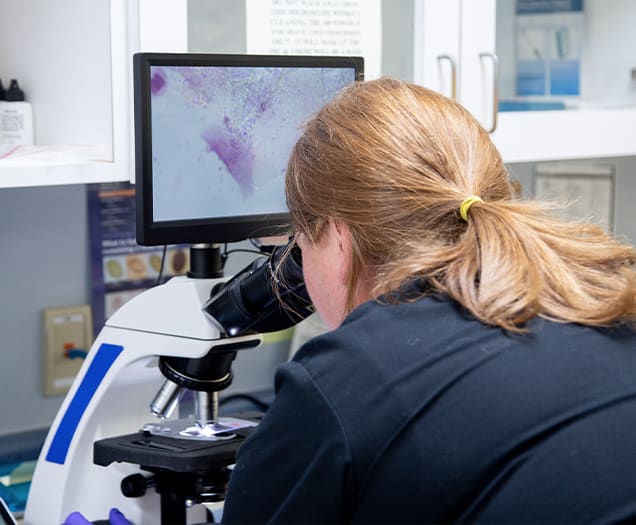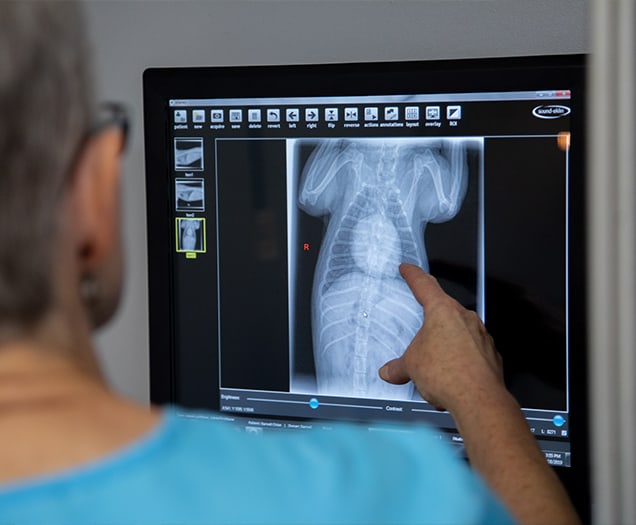
In-House Laboratory
When you're worried about your pet's health, waiting for test results can be stressful. Our in-house laboratory allows us to perform tests and get results quickly, so that we can diagnose your pet's symptoms and start treatment as soon as possible.
At our in-house lab, we can run a variety of tests including:
- Complete Blood Counts
- Blood Chemistry Panels
- Parvovirus
- Heartworm Detection
- Fecal Exams & Intestinal Parasite
- Urinalysis
- Electrolyte Evaluation
- Cytology of Skin & Ear Samples
- Feline Leukemia
- Feline Immunodeficiency Virus
In-House Pharmacy
Our pharmacy is located right in our office, and is stocked with a range of medications and prescription diets, giving us quick access to any medications your pets may need while in our care. You can also fill and refill your pet’s prescriptions during your visits or at your convenience.
Diagnostic Imaging
Diagnostic imaging is the use of electromagnetic radiation and other technologies to produce highly detailed images of the internal structures of your pet's body to help provide an accurate diagnosis.
At Southwind Animal Hospital, we offer in-house digital x-rays and ultrasound so we can learn what's happening inside your pet's body and provide the most efficient treatment.
- Digital Radiology (X-Rays)
Digital x-rays are used to produce extremely detailed images of a patient during the exam process. The data captured can be pulled up instantly on a computer screen.
This technology gives us high quality images quickly and safely, resulting in better diagnosis and more efficient treatment in the long run. - Ultrasound
Ultrasound is a non-invasive technology that uses sound waves transmitted into the body to create an image that allows your vet to look at the architecture of an organ.
With ultrasound, fluid can be distinguished from soft tissue masses or foreign bodies, which can be difficult to do with a digital x-ray.
This makes the ultrasound useful in the diagnosis patients for hemoabdomen and pericardial effusion (blood in the abdomen and around the heart).
When a pet has a tumor or ingests something it shouldn’t have, an ultrasound can also be helpful to locate the objects and characterize them.

